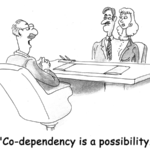Dear Neil: I am in an abusive relationship with my husband. Recently he was taken to jail for domestic violence. He claimed he never touched me, and that I inflicted the bruises on myself. This finally pushed me to leave, but during that separation we started counseling. I have since returned home, and things for the first couple of weeks were perfect. That happiness didn’t last long, and now things seem to be right back to where they were earlier. I love him, but I really cannot keep living like this. I am 27 years old and dream of having more children, but I do not see that as an option in this relationship. Do I need to give it up and move on? If so, how can I get the strength to do so?
Bruised in Denver
Dear Bruised: No, you don’t have to give up your marriage Just know that nothing is going to change unless you force it to change. You are going to have to refuse to accept things the way they are if you want to better your life and your future.
So I have some recommendations for you. First, look at your life’s goals and soberly assess whether you think you can further those goals in this marriage. I can assure you that your husband’s abusive behavior won’t change if he can’t own up to his actions and accept responsibility for his behaviors. And I can further assure you that his behaviors are going to continue—unless you force some changes.
How do you do that? You could—at the very least—put some conditions on the two of you remaining together. You could say that unless he enters domestic violence classes, or intensive individual psychotherapy, to deal with his anger, his loss of control and his lack of honesty and accountability, that you will not remain with him. If he refuses to get professional help, and if he doesn’t get better with conflict resolution, anger management, honesty and his lost of control impulses, then I would suggest that unless you leave him, nothing is going to change.
To admit that I made a mistake and to apologize and to say that I was wrong in how I handled a situation, and that I will hold myself accountable for better behavior in the future—and then to follow through with those words through consistent behaviors—is a central mark of maturity and accountability, and all adults should be held to that standard.
So how do you gather the strength to leave if he doesn’t do all of this? Get yourself a strong support system (friends, family, a counselor, a mentor, etc) so you have people to lean on. Then check with legal aid or a lawyer on the process of how to go about legally dissolving your marriage. Put yourself in the position to further your life’s dreams and goals, and to not push those goals further back, and look carefully in how you can go after realizing some of those goals now.
Also look for the lessons you can learn from this experience, how you contributed to the problems between the two of you, how well you fostered connection and partnership, what warning signs you missed when you chose your husband and what you promise yourself you’ll do differently next time around.





